Flavors and fragrances
Fragrance or spice refers to the material with an aromatic odor itself. Most of the pastries and cookies can be added with spices and fragrances in order to improve or enhance the aroma and flavor. These spices and fragrances are called flavoring agent. Spices, according to different sources, can be divided into natural and artificial spices. Natural spices also include animal and vegetable spices with food production mainly using vegetable spices. Artificial spice is compound made from the synthesis reaction of raw materials including petrochemical products and coal tar products. Fragrance is compound spices made from several or dozens of spices via diluent blending. Strictly speaking, spices generally refer to the raw material used for making fragrance and are rarely used directly in food. Fragrance is instead an important raw material directly used to increase the food flavor.
The food flavoring process is a complex project. It is not simply a composite of several fragrances, but also involves many factors such as whether this fragrance can be merged with food substrate material; whether it is acid resistant, heat resistant; whether it can keep stable during the process of sterilization and preservation, etc. Moreover, because of the different sources and purities of spices in different categories of fragrances, even for the same kind of fragrance, the usage amount in the same product can be quite difference and should be paid great attention. Generally speaking, for the liquid food, the total amount of various kinds of fragrances should not exceed 0.1% with <0.05% being appropriate. However, for solid product, the amount should be kept at about 0.1%.
For food, the fragrance and spice play a role of inducing appetite and promoting appetite, and thus being an indispensable part of food. Excellent fragrance, spice products play a role of “make the finishing point. Being fresh and natural is the goal that the food industry adopting fragrance and spices wish to achieve while the clever combination of a variety of fragrances can make the food product icing on the cake.
Spices and fragrances are relatively common in the recipe of cakes and biscuits. Except for a few species, almost every varies must be supplemented with spices or fragrances. The major purpose of supplementing spices or fragrance in cakes and biscuits is to endow the product with unique flavor and enhance the flavor of the product. Thus, according to different categories of cakes and biscuits, we can choose different spices or fragrances to make the product have different flavors. For example, cream crackers can be supplemented with butter fragrance; coconut cake can be supplemented with coconut oil fragrances; orange biscuits can be supplemented with orange essential oils and so on. Natural spices have high safety with mild and smoothing flavoring, being better than artificial spices and fragrances. There are many types of natural spices with commonly used types including lemon oil, orange oil and coconut oil. Most kinds of food fragrances are the fruit-aroma fragrances formulated from imitating a variety of fruit aromas.
In the production of biscuits, commonly used food fragrances include lemon fragrance, orange fragrance, coconut fragrance, banana fragrance and strawberry fragrance. In addition, there are some other more common types of flavors, such as cocoa fragrance, butter fragrance and vanilla fragrance. Water-soluble fragrances are formulated from using distilled water, ethanol, propylene glycol or glycerol as a diluent. They are prone to be evaporated and are not suitable for bakery scenting purposes. Oil-soluble fragrances are used to refine the vegetable oil and are formulated using glycerol or propylene glycol as the diluent with better heat resistance than the water-soluble fragrances, making it be suitable for baked goods.
- Structure:
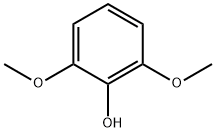
- Chemical Name:2,6-Dimethoxyphenol
- CAS:91-10-1
- MF:C8H10O3
- Structure:

- Chemical Name:4-Propylphenol
- CAS:645-56-7
- MF:C9H12O
- Structure:

- Chemical Name:2-Pyrazinylethanethiol
- CAS:35250-53-4
- MF:C6H8N2S
- Structure:

- Chemical Name:Citronellol
- CAS:106-22-9
- MF:C10H20O
- Structure:
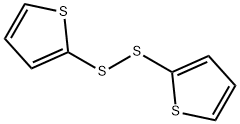
- Chemical Name:2-Thienyl disulfide
- CAS:6911-51-9
- MF:C8H6S4
- Structure:

- Chemical Name:Hydroxyacetone
- CAS:116-09-6
- MF:C3H6O2
- Structure:
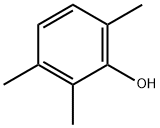
- Chemical Name:2,3,6-Trimethylphenol
- CAS:2416-94-6
- MF:C9H12O
- Structure:

- Chemical Name:3-Heptanone
- CAS:106-35-4
- MF:C7H14O
- Structure:

- Chemical Name:trans-2-Hexenoic acid
- CAS:13419-69-7
- MF:C6H10O2
- Structure:

- Chemical Name:2-Pentanol
- CAS:6032-29-7
- MF:C5H12O
- Structure:

- Chemical Name:Cinnamaldehyde
- CAS:104-55-2
- MF:C9H8O
- Structure:
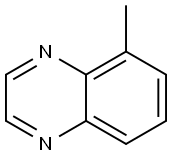
- Chemical Name:5-METHYLQUINOXALINE
- CAS:13708-12-8
- MF:C9H8N2
- Structure:
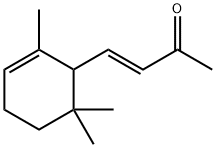
- Chemical Name:alpha-Ionone
- CAS:127-41-3
- MF:C13H20O
- Structure:
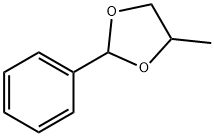
- Chemical Name:Benzaldehyde propylene glycol acetal
- CAS:2568-25-4
- MF:C10H12O2
- Structure:
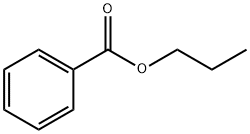
- Chemical Name:PROPYL BENZOATE
- CAS:2315-68-6
- MF:C10H12O2
- Structure:

- Chemical Name:Methyl valeraldehyde
- CAS:123-15-9
- MF:C6H12O
- Structure:
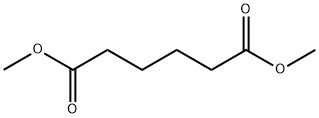
- Chemical Name:Dimethyl adipate
- CAS:627-93-0
- MF:C8H14O4
- Structure:

- Chemical Name:4-Methylthiazole
- CAS:693-95-8
- MF:C4H5NS
- Structure:
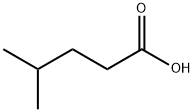
- Chemical Name:4-Methylvaleric acid
- CAS:646-07-1
- MF:C6H12O2
- Structure:

- Chemical Name:α-Methylcinnamaldehyde
- CAS:101-39-3
- MF:C10H10O
- Structure:

- Chemical Name:Benzothiazole
- CAS:95-16-9
- MF:C7H5NS
- Structure:
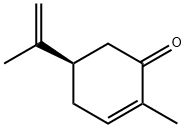
- Chemical Name:L(-)-Carvone
- CAS:6485-40-1
- MF:C10H14O
- Structure:

- Chemical Name:2,5-Dimethyl-1H-pyrrole
- CAS:625-84-3
- MF:C6H9N
- Structure:

- Chemical Name:Ethyl butyrylacetate
- CAS:3249-68-1
- MF:C8H14O3
- Structure:

- Chemical Name:2-METHOXYTHIAZOLE
- CAS:14542-13-3
- MF:C4H5NOS
- Structure:

- Chemical Name:4-Ethylphenol
- CAS:123-07-9
- MF:C8H10O
- Structure:

- Chemical Name:trans,trans-2,4-Decadien-1-al
- CAS:25152-84-5
- MF:C10H16O
- Structure:
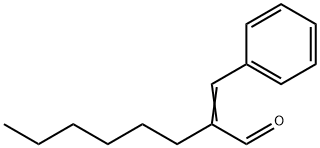
- Chemical Name:alpha-Hexylcinnamaldehyde
- CAS:101-86-0
- MF:C15H20O
- Structure:
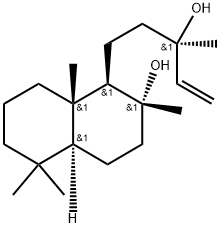
- Chemical Name:Sclareol
- CAS:515-03-7
- MF:C20H36O2
- Structure:
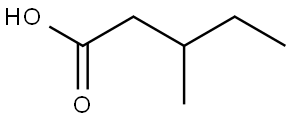
- Chemical Name:DL-3-Methylvaleric acid
- CAS:105-43-1
- MF:C6H12O2
- Structure:

- Chemical Name:2-Nonanone
- CAS:821-55-6
- MF:C9H18O
- Structure:

- Chemical Name:2-Methylthiophene
- CAS:554-14-3
- MF:C5H6S
- Structure:

- Chemical Name:4-Hexanolide
- CAS:695-06-7
- MF:C6H10O2
- Structure:
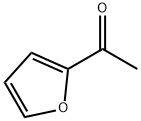
- Chemical Name:2-Acetylfuran
- CAS:1192-62-7
- MF:C6H6O2
- Structure:
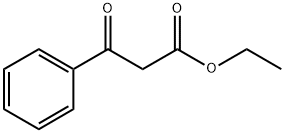
- Chemical Name:Ethyl benzoylacetate
- CAS:94-02-0
- MF:C11H12O3
- Structure:
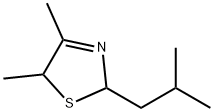
- Chemical Name:4,5-Dimethyl-2-isobutyl-3-thiazoline
- CAS:65894-83-9
- MF:C9H17NS
- Structure:

- Chemical Name:3-Methylthiophene
- CAS:616-44-4
- MF:C5H6S
- Structure:
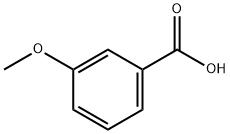
- Chemical Name:3-Methoxybenzoic acid
- CAS:586-38-9
- MF:C8H8O3
- Structure:

- Chemical Name:alpha-Angelica lactone
- CAS:591-12-8
- MF:C5H6O2
- Structure:

- Chemical Name:2,5-Dimethylfuran
- CAS:625-86-5
- MF:C6H8O
- Structure:
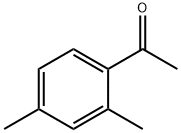
- Chemical Name:2',4'-Dimethylacetophenone
- CAS:89-74-7
- MF:C10H12O
- Structure:

- Chemical Name:trans,trans-2,4-Heptadienal
- CAS:4313-03-5
- MF:C7H10O
- Structure:

- Chemical Name:METHYL MYRISTATE
- CAS:124-10-7
- MF:C15H30O2
- Structure:

- Chemical Name:2,4-Dimethylthiazole
- CAS:541-58-2
- MF:C5H7NS
- Structure:
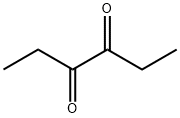
- Chemical Name:3,4-Hexanedione
- CAS:4437-51-8
- MF:C6H10O2
- Structure:
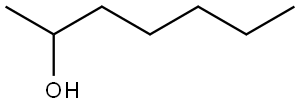
- Chemical Name:2-Heptanol
- CAS:543-49-7
- MF:C7H16O
- Structure:

- Chemical Name:1-Penten-3-ol
- CAS:616-25-1
- MF:C5H10O
- Structure:

- Chemical Name:ETHYL (METHYLTHIO)ACETATE
- CAS:4455-13-4
- MF:C5H10O2S
- Structure:
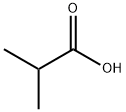
- Chemical Name:Isobutyric acid
- CAS:79-31-2
- MF:C4H8O2
- Structure:
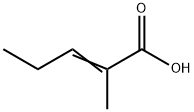
- Chemical Name:2-Methyl-2-pentenoic acid
- CAS:3142-72-1
- MF:C6H10O2
- Structure:

- Chemical Name:Octyl 4-methoxycinnamate
- CAS:5466-77-3
- MF:C18H26O3
- Structure:

- Chemical Name:2,6-Dimethyl-5-heptenal
- CAS:106-72-9
- MF:C9H16O
- Structure:
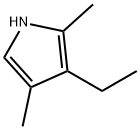
- Chemical Name:2,4-Dimethyl-3-ethyl-1H-pyrrole
- CAS:517-22-6
- MF:C8H13N
- Structure:
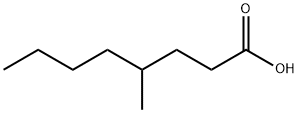
- Chemical Name:4-Methyloctanoic acid
- CAS:54947-74-9
- MF:C9H18O2
- Structure:
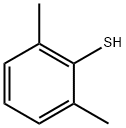
- Chemical Name:2,6-DIMETHYLTHIOPHENOL
- CAS:118-72-9
- MF:C8H10S
- Structure:
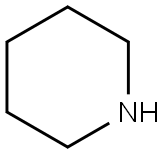
- Chemical Name:Piperidine
- CAS:110-89-4
- MF:C5H11N
- Structure:

- Chemical Name:2,5-Dihydroxy-1,4-dithiane
- CAS:40018-26-6
- MF:C4H8O2S2
- Structure:

- Chemical Name:2-Pentylpyridine
- CAS:2294-76-0
- MF:C10H15N
- Structure:

- Chemical Name:γ-Valerolactone
- CAS:108-29-2
- MF:C5H8O2
- Structure:
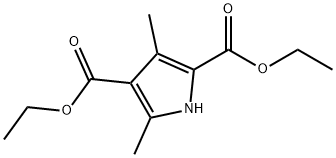
- Chemical Name:Diethyl 2,4-dimethylpyrrole-3,5-dicarboxylate
- CAS:2436-79-5
- MF:C12H17NO4
- Structure:
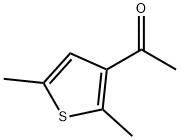
- Chemical Name:3-Acetyl-2,5-dimethylthiophene
- CAS:2530-10-1
- MF:C8H10OS
- Structure:

- Chemical Name:gamma-Octanoic lactone
- CAS:104-50-7
- MF:C8H14O2
- Structure:
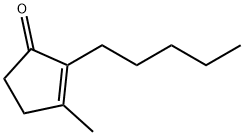
- Chemical Name:2-Pentyl-3-methyl-2-cyclopenten-1-one
- CAS:1128-08-1
- MF:C11H18O
- Structure:

- Chemical Name:4-Heptanone
- CAS:123-19-3
- MF:C7H14O
- Structure:

- Chemical Name:(E,E)-Farnesol
- CAS:106-28-5
- MF:C15H26O
- Structure:
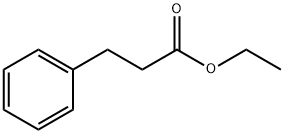
- Chemical Name:Ethyl 3-phenylpropionate
- CAS:2021-28-5
- MF:C11H14O2
- Structure:

- Chemical Name:2-Octanone
- CAS:111-13-7
- MF:C8H16O
- Structure:
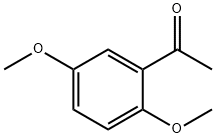
- Chemical Name:2',5'-Dimethoxyacetophenone
- CAS:1201-38-3
- MF:C10H12O3
- Structure:
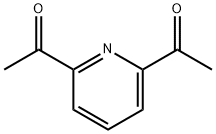
- Chemical Name:2,6-Diacetylpyridine
- CAS:1129-30-2
- MF:C9H9NO2
- Structure:

- Chemical Name:1-Octen-3-ol
- CAS:3391-86-4
- MF:C8H16O
- Structure:

- Chemical Name:Ethyl crotonate
- CAS:623-70-1
- MF:C6H10O2
- Structure:
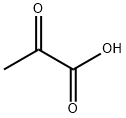
- Chemical Name:Pyruvic acid
- CAS:127-17-3
- MF:C3H4O3
- Structure:
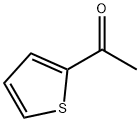
- Chemical Name:2-Acetylthiophene
- CAS:88-15-3
- MF:C6H6OS
- Structure:

- Chemical Name:4-Methyl-5-vinylthiazole
- CAS:1759-28-0
- MF:C6H7NS
- Structure:

- Chemical Name:2-Tridecanone
- CAS:593-08-8
- MF:C13H26O
- Structure:

- Chemical Name:2-Methyl-1-butanol
- CAS:137-32-6
- MF:C5H12O
- Structure:

- Chemical Name:4-Methyl-5-thiazolylethyl acetate
- CAS:656-53-1
- MF:C8H11NO2S
- Structure:
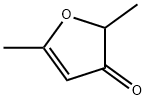
- Chemical Name:2,5-Dimethyl-3(2H)-furanone
- CAS:14400-67-0
- MF:C6H8O2
- Structure:
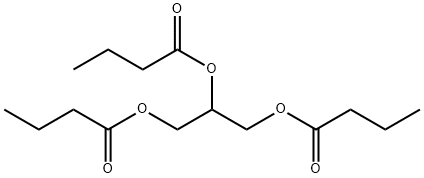
- Chemical Name:Tributyrin
- CAS:60-01-5
- MF:C15H26O6
- Structure:
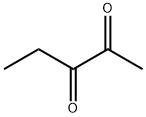
- Chemical Name:2,3-Pentanedione
- CAS:600-14-6
- MF:C5H8O2
- Structure:

- Chemical Name:Butyl hexanoate
- CAS:626-82-4
- MF:C10H20O2
- Structure:

- Chemical Name:2,5-Dimethylthiophene
- CAS:638-02-8
- MF:C6H8S
- Structure:
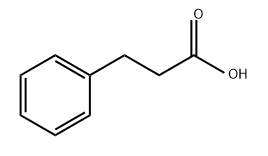
- Chemical Name:3-Phenylpropionic acid
- CAS:501-52-0
- MF:C9H10O2
- Structure:

- Chemical Name:5-Hydroxymethylfurfural
- CAS:67-47-0
- MF:C6H6O3
- Structure:

- Chemical Name:1-Bromopentane
- CAS:110-53-2
- MF:C5H11Br
- Structure:

- Chemical Name:2-Isobutylthiazole
- CAS:18640-74-9
- MF:C7H11NS
- Structure:

- Chemical Name:trans-2-Hexen-1-ol
- CAS:928-95-0
- MF:C6H12O
- Structure:
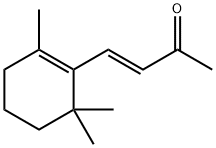
- Chemical Name:β-Lonone
- CAS:79-77-6
- MF:C13H20O
- Structure:
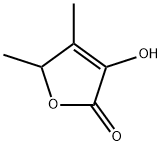
- Chemical Name:4,5-Dimethyl-3-hydroxy-2,5-dihydrofuran-2-one
- CAS:28664-35-9
- MF:C6H8O3
- Structure:

- Chemical Name:1,1-Dimethoxyethane
- CAS:534-15-6
- MF:C4H10O2
- Structure:
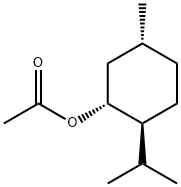
- Chemical Name:L-Menthyl acetate
- CAS:2623-23-6
- MF:C12H22O2
- Structure:
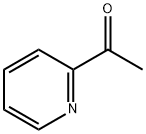
- Chemical Name:2-Acetylpyridine
- CAS:1122-62-9
- MF:C7H7NO
- Structure:

- Chemical Name:1-Pentanol
- CAS:71-41-0
- MF:C5H12O
- Structure:

- Chemical Name:2-Methyl-2-thiazoline
- CAS:2346-00-1
- MF:C4H7NS
- Structure:
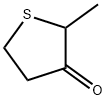
- Chemical Name:Dihydro-2-methyl-3(2H)-thiophenone
- CAS:13679-85-1
- MF:C5H8OS
- Structure:
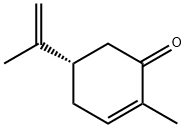
- Chemical Name:D(+)-Carvone
- CAS:2244-16-8
- MF:C10H14O
- Structure:

- Chemical Name:delta-Dodecalactone
- CAS:713-95-1
- MF:C12H22O2
- Structure:
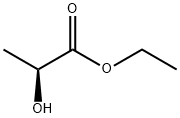
- Chemical Name:Ethyl L(-)-lactate
- CAS:687-47-8
- MF:C5H10O3
- Structure:
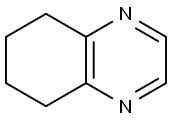
- Chemical Name:5,6,7,8-Tetrahydroquinoxaline
- CAS:34413-35-9
- MF:C8H10N2
- Structure:

- Chemical Name:Quinaldine
- CAS:91-63-4
- MF:C10H9N